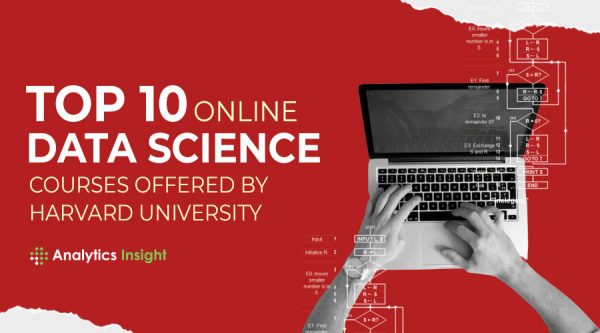Here is the list of the Top 10 Online data science courses offered by Harvard university
Data science is at the core of the modern business, from healthcare to government to advertising. Data Science Principles is a Harvard Online course that gives you an overview of data science with a code- and math-free introduction to prediction, causality, data wrangling, privacy, and ethics. Harvard online course understands the modern data science landscape and technical terminology for a data-driven world. Data science predicts the consequences of data use and misuse and knows when more data may be needed or when to change approaches. Here is the list of the Top 10 Online data science courses offered by Harvard university
Principles, Statistical and Computational Tools for Reproducible Data Science: This course will appeal to students and professionals in biostatistics, computational biology, bioinformatics, and data science. The course content will blend video lectures, case studies, peer-to-peer engagements, and the use of computational tools and platforms. Thus, this course is really for anyone who is doing any data-intensive research.
Data Science: Capstone: This course will teach a strong indicator of your expertise in the field of data science. This course’s final project will test your skills in data visualization, probability, inference and modeling, data wrangling, data organization, regression, and machine learning.
Causal Diagrams: Draw Your Assumptions Before Your Conclusions: This course’s first part is comprised of seven lessons that introduce causal diagrams and their applications to causal inference. The first lesson introduces causal DAGs, a type of causal diagram, and the rules that govern them. The second, third, and fourth lessons use causal DAGs to represent common forms of bias.
Statistical Inference and Modeling for High-throughput Experiments: In this course, you’ll learn various statistics topics including multiple testing problems, error rates, error rate controlling procedures, false discovery rates, q-values, and exploratory data analysis.
Introduction to Linear Models and Matrix Algebra: This course will be teaching advanced statistical concepts such as hierarchical models and by the fourth advanced software engineering skills, such as parallel computing and reproducible research concepts.
Statistics and R: In this course, you will learn the basics of statistical inference to understand and compute p-values and confidence intervals, all while analyzing data with R. and you will be teaching advanced statistical concepts such as hierarchical models, and by the fourth advanced software engineering skills.
Case Studies in Functional Genomics: This course will explain how to perform the standard processing and normalization steps, starting with raw data, to get to the point where one can investigate relevant biological questions. The course will end with a brief description of the basic steps for analyzing ChIP-seq datasets, from reading alignment to peak calling, and assessing differential binding patterns across multiple samples.
Advanced Bioconductor: In this course, they begin with approaches to the visualization of genome-scale data, and provide tools to build interactive graphical interfaces to speed discovery and interpretation.
High-Dimensional Data Analysis: This course is for you. We start by learning the mathematical definition of distance and use this to motivate the use of the singular value decomposition (SVD) for dimension reduction and multi-dimensional scaling and its connection to principal component analysis.
Data Science: Linear Regression: This course, part of their Professional Certificate Program in Data Science, covers how to implement linear regression and adjust for confounding in practice using R.
Source: analyticsinsight.net









